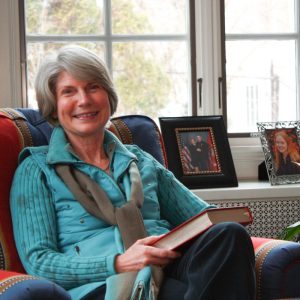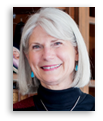A few weeks ago, I left my desk research, loaded a bunch of books and accordion files into my trunk and drove east. I was on the Interstate for two days before I veered off onto some winding mountain roads that would lead to my destination. “Leaving the Interstate”is the perfect metaphor for the particular kind of research I was doing. I had to get off the well-traveled roads of easily-accessible books and articles and venture into the unmediated archival world of photos and documents only available to those willing to strike out and look for them. I used the travel time to banish from my mind any pre-conceived notions I might have picked up from other biographers and enter a place where I was the first and only human ever to set eyes on the contents of the boxes and folders that were waiting for me. The people who welcomed me (all descendants of my subject) told me it would probably take no more than an afternoon to go through the material they had. When they carried seven stacks of documents into the room they’d set aside for me to work in, I knew they’d underestimated and started to wonder if the mere five days I had allotted would be enough. The initial hours pouring over documents were, as usual, overwhelming. There were too many people I couldn’t identify in the photos, scribblings and clippings I had trouble placing on my timeline, in short, the material produced more questions than clarifications. Then, slowly, things started to fall into place. There were duplicate copies of many of the photos scattered among the files and one among the many often had a scribbled note on the back. The archive contained transcripts of radio broadcasts that helped me hear my subject speak and meticulous garden logs created when she was in mourning for a son who died young. I found accounts of her other son’s heroic exploits during World War I and details of her own war work on the home front that I’d been unaware of. I poured over the front and back of each item (you don’t get to see the backs of things when you view items online) and spent extra time on corrections – things long-dead people had crossed out and rewritten. When I finished work each day, I made my way to a restaurant I’d adopted for the week and sought out a corner table where I could do some heavy thinking. Friends from Richmond who knew the area had given me some sight-seeing suggestions which I knew I would never follow up on. I needed the evenings to let things settle and sort, to allow the puzzle pieces of information to find one another and become pictures. Some of the pictures that formed in my mind had a right and firm feel to them; others would be torn apart and reformed into new pictures…all possibilities about this life I was trying to piece together. I just managed to make it through all the stacks of material before I had to leave. An unexpected family issue meant a week-long detour before I could get home and back to work. But now I’m here at the Bagel shop with some brand new thoughts and fresh energy.
—
>> View the Entire Work in Progress Series
—

Connie Nordhielme Wooldridge
About Connie Nordhielm Wooldridge
Biography | View
- Just Fine They Way They Are (Calkins Creek, March 1, 2011)
- The Brave Escape of Edith Wharton (Clarion Books, 2010)
- Thank You Very Much, Captain Ericsson! (Holiday House, 2005; Berndtsdotter Books, 2012)
- When Esther Morris Headed West (Holiday House, 2001)
- The Legend of Strap Buckner (Holiday House, 2001)
- Wicked Jack (Holiday House, 1995)
Speaker / Presenter
Connie is an experienced speaker and presenter who enjoys sharing her passion for writing and her experience as a writer with readers and writers of all ages. She has presented to students, community, civic and professional organizations, writing groups, library audiences, and seniors – wherever book lovers gather! >> More Information About Connie Speaking and Presenting


